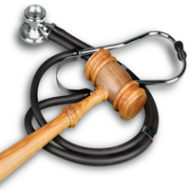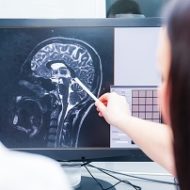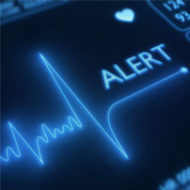Avoiding an ADHD Misdiagnosis
March 15, 2018According to the Centers for Disease Control and Prevention, attention deficit hyperactivity disorder (ADHD) is the most commonly diagnosed behavioral disorder in children under the age of 18. Oftentimes, physicians will diagnose a child with ADHD based on symptoms such as difficulty sleeping, irritability, fidgeting, forgetfulness, and anxiety. However, there are other medical conditions that » Read More
When Does a Misdiagnosis Warrant a Lawsuit?
March 13, 2018According to a study by Johns Hopkins University, medical errors are responsible for over 250,000 fatalities per year in the United States, making it the third leading cause of fatality. The two most common medical errors are misdiagnosis and delayed diagnosis, both of which can have very serious consequences. The term misdiagnosis includes delayed diagnosis, » Read More
How to Avoid a Misdiagnosis
February 27, 2018Doctors often diagnose an illness based on the symptoms that the patient is suffering from, as well as the patient’s age, family history, and other information that can help accurately identify the problem. However, oftentimes, patients have symptoms that are nonspecific, like headaches, muscle or joint pain, or stomach discomfort that leave physicians just as » Read More
Misdiagnosis of Psychotic Alzheimer’s Patients
December 12, 2017Alzheimer’s disease is one of the most common forms of dementia, affecting over five million people in the United States alone. There is no cure for Alzheimer’s and a diagnosis can be a devastating blow to the patient and his or her family. Alzheimer’s is frequently misdiagnosed because it can resemble other types of dementia » Read More
Doctor Misinterprets Test Results
November 15, 2017Cancer screening tests can be extremely effective at determining whether a patient is at risk for developing certain types of cancer. For example, women who have a family history of breast cancer can be tested for a BRCA 1 and BRCA 2 gene mutation that would confirm whether they are at an increased risk for » Read More
The Dangers of Undiagnosed Brain Injuries
September 25, 2017Hospital emergency rooms tend to be extremely busy and hectic places. On any given day, doctors and nurses must evaluate, diagnose, and treat patients suffering from a variety of medical issues ranging from lacerations and broken bones to severe infections and illnesses. If a condition is not properly diagnosed, and the patient does not receive » Read More
When General Practitioners Fail to Diagnose Heart Disease
August 9, 2017New research published in The Joint Commission Journal on Quality and Patient Safety reveals that close to 25 percent of patients with a misdiagnosis of heart attack or coronary artery disease had a history of cardiovascular disease. The research was conducted by CRICO Strategies and The Doctors Company. Unfortunately, failing to recognize the signs or » Read More
Disclosing Medical Mistakes May Reduce Malpractice Costs
July 31, 2017When a patient has been injured or has passed away as a result of a medical mistake, the standard operating procedure that doctors have followed has been to deny any wrongdoing and defend their care. For the patients who suspect negligence, and pursue a medical malpractice case, it can be a long, stressful, and emotional » Read More
Angioplasty Death Rates Double on Weekends
July 4, 2017An angioplasty is a common heart procedure that opens up blood vessels that have become narrowed or blocked. Also called Percutaneous Coronary Intervention (PCI), the procedure involves placing a small tube into the blood vessel where it is carefully guided to the heart by a qualified physician. According to the United States National Heart, Lung, » Read More
Baltimore Medical Malpractice Lawyers: Misdiagnosis of Parkinson’s
May 8, 2017Parkinson’s disease is a neurodegenerative disorder that causes the brain to stop producing dopamine, a neurotransmitter that controls a person’s ability to regulate their movements and their emotions. Some of the most common symptoms associated with Parkinson’s disease, including muscle rigidity, tremors, changes in one’s gait, and slurred speech, are often mistaken as signs of » Read More















